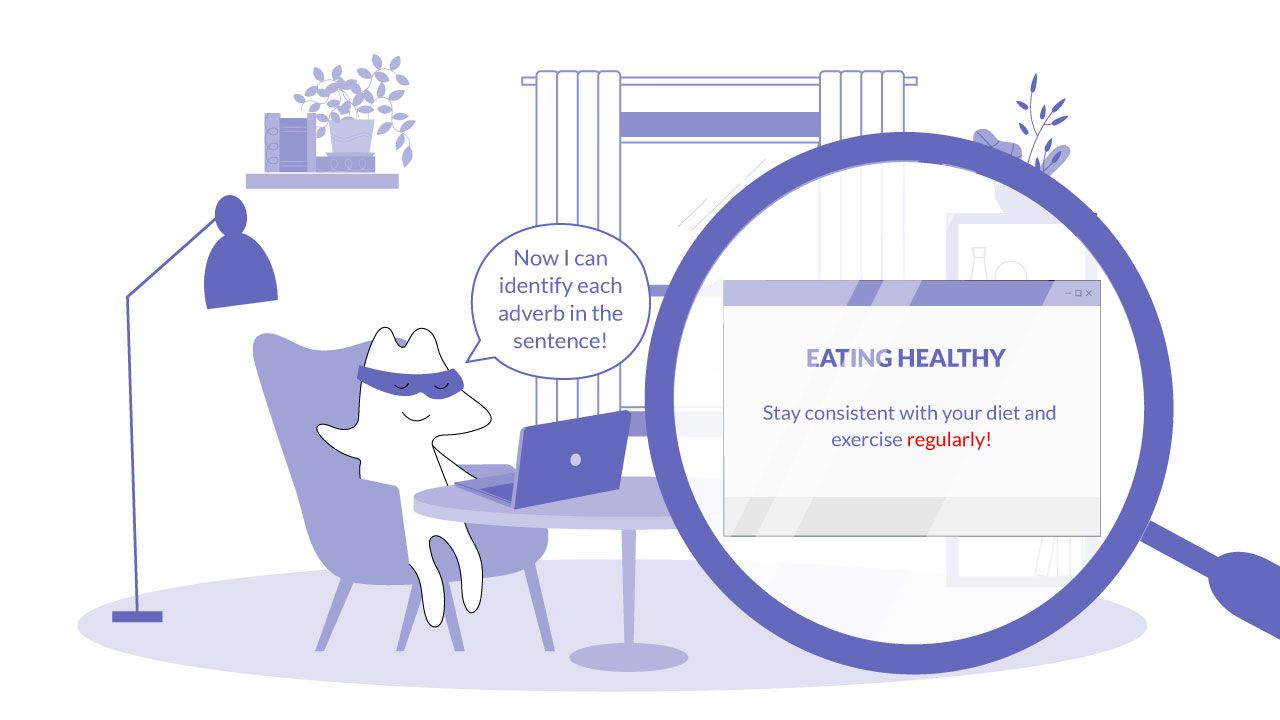
In order to be successful in business, it is important to have a strong command of the English language. Business English involves learning specific vocabulary, understanding cultural norms, and following tips to improve your communication skills in professional contexts.
Whether you're looking to land your first job or move up the corporate ladder, learning the words and phrases corporate leaders use will give you a competitive edge over other candidates, even if they’re native English speakers.
In the article below, you will find various tips and resources for studying Business English, along with some handy Business English expressions. So, let’s get the ball rolling!
Learn English with Langster
Why Should You Learn Business English?
Whether you're looking for a new job or want to advance in your career, your language skills will make you the best candidate for a job. Having a strong Business English foundation will improve your communication skills and understanding of cultural norms, making you a more valuable asset to any organization.
Here are three reasons why learning a corporate language is a valuable investment for your career:
Competitive Edge
In today's global economy, businesses are looking for employees who can communicate effectively with people from all over the world. If you can demonstrate your proficiency in workplace communication, you'll be ahead of the competition when applying for jobs that require you to work with native English speakers.
Understanding Cultural Norms
Culture plays a big role in international business. What is considered polite and professional in one culture may be considered rude or unprofessional in another. By learning this, you'll gain an understanding of the cultural norms of international trade, which will help you avoid offending or alienating your colleagues and clients.
Improved Communication Skills
Strong communication skills are essential for success in any profession. If you can learn to communicate effectively in the office, you'll be better equipped to handle the challenges of the workplace. You'll be able to give presentations, write reports and formal emails, participate in work meetings and training, and negotiate deals with confidence.
Some additional benefits of learning Business English include:
- increased job opportunities,
- promotion potential,
- enhanced earnings potential
- improved ability to work in a globalized economy.
How Can You Learn Business English?
If you're looking to improve your language skills, there are a number of resources available to help you. The most important thing is to find a creative solution that works for you and to stick with it. Regular practice will help you make progress in your learning.
Here are a few of the most popular methods:
- Books. There are many books available on this subject. These books can help you learn new vocabulary, understand cultural norms, and improve your communication skills. For example, Macmillan’s Business Builder will be a perfect choice for those looking for a short yet intensive Business English course.
- Online courses. There are also a number of online courses available that can help you improve your corporate language skills. These courses typically include videos, quizzes, and basic English phrases to help you get started.
- Tutors. If you want one-on-one help, you can also find tutors who specialize in teaching Business English. These tutors can help you with specific areas that you're struggling with, such as grammar or pronunciation.
- Language schools. If you're looking for a more immersive experience, you can go the extra mile and also attend an offline language school that offers Business English courses. These courses typically last for a few weeks and include both classroom instruction and real-world practice.
- Online forums. Another great way to learn the subject is to participate in online forums, as they are a great place to ask questions, get feedback, and practice your communication skills.

Online Resources
In addition to online forums and courses, there are also podcasts, apps, pronunciation guides, and many other online resources. They can help you learn the basics of Business English and improve your communication skills.
Here are some recommendations:
- BBC Learning English offers a variety of Business English lessons, including topics such as email etiquette and giving presentations.
- FluentU offers a range of videos, from interviews with CEOs to explanations of common business terms.
- Business English Pod offers a series of audio and video lessons, such as making small talk and negotiating deals.
- EnglishClub offers a range of resources for learning workplace language, including lessons, quizzes, and articles.
- Wall Street English offers a range of Business English courses, from beginner to advanced level.
Whether you're just starting to learn or you're looking to improve your skills, these online resources can help. With a little time and effort, you can master the language and reach your career goals.
Business English Vocabulary
When it comes to business, having a strong vocabulary is key. This includes words and phrases related to topics such as marketing, finance, and human resources. After all, you want to be able to express yourself clearly and confidently in any professional setting.
Here are some tips for growing your Business English vocabulary:
- Read, read, read. One of the best ways to learn new vocabulary is to expose yourself to as much written corporate language as possible. This could include reading business news articles, blogs, reports, or even novels with business themes.
- Listen and learn. In addition to reading, it's also important to hear this being spoken. You can listen to business podcasts, watch TED Talks, or even attend business meetings, conferences, and industry events (if possible).
- Use a dictionary. When you come across a new word or phrase, take the time to look it up in, for example, Cambridge Business English Dictionary. This will help you better understand the meaning and usage of the term.
- Keep a vocabulary notebook. A great way to review new vocabulary is to keep a notebook of all the words and phrases you've learned. This way, you can reference your notes and review new terms on a regular basis.
- Practice, practice, practice. The more you use new vocabulary in conversation or writing, the more likely you are to remember it. So, once you've learned a new Business English term, put it into practice.

Key Business English Phrases You Need to Know
To help you get started, below, you’ll find a few handy Business English expressions that you should know in order to communicate effectively in a professional setting.
However, it’s essential to note that your corporate vocabulary will depend greatly on the industry you’re working in. For example, the terminology used to develop an advertising campaign or complete a design project will drastically differ from that used by international trade companies.
As such, it’s crucial to choose relevant business vocabulary to not waste time. Here are some of the most universal Business English phrases:
Can I have a moment of your time?
Use this phrase to get someone's attention, especially if they are busy or appear to be preoccupied.
I'm sorry, but could you please repeat that?
This phrase is very useful for ESL speakers in the office. It means that you're paying attention, and you’re politely asking the speaker to repeat themselves because you didn't catch what they said.
Could you elaborate on that?
This is useful for when you don’t fully understand how something will happen. If you need clarification, this is a great way to ask for more information without sounding confrontational.
Let’s touch base next week, shall we?
Touch base is an idiom often used in business contexts meaning to “make contact” or “talk to”, as in the provided example, let’s touch base next week.
Some other idioms frequently used in Business English are get the ball rolling ( meaning to “set an activity in motion”), cut corners (meaning “to do sloppily to save time or money”), and to go back to the drawing board (meaning to “start again”).
I see what you're saying, but...
This phrase is a helpful way to disagree with someone while still showing respect for their opinion.
Studying Business English expressions might seem like a lot of work at first, but keep in mind that the majority of those words and phrases you’ll be using on a daily basis when talking to your colleagues and customers alike. Even if you’re a new employee, it’s possible to learn and adopt new terminology within a few months.
Business English Culture
Many businesses expand to the international market, so it's important to be aware of the possible cultural differences. This includes understanding the customs and etiquette of the country you're doing business in.
Here are a few tips for understanding Business English culture and navigate the business world in another country successfully:
- Do your research. Before meeting with someone from another country, take the time to research their culture and customs. This will help you avoid misunderstandings during your meeting.
- Be respectful. Even if you don't agree with the other person's cultural norms, it's important to be respectful, patient, and flexible. This includes avoiding offensive language or gestures.
- Be positive. It's important to remember that the other person is just trying to do their job. By remaining positive, you can maintain a good relationship with the other person and resolve problems that may arise.
- Keep an open mind. It's also important to keep an open mind when doing business in another country. This means being willing to try new things and understanding that things may be done differently than what you're used to.

Tips for Improving Business English Communication Skills
In order to communicate effectively in the corporate world, it's important to keep the following tips in mind:
- Use clear and concise language. When speaking or writing in Business English, it's important to use language that is easy to understand. This means avoiding jargon and using simple, direct language whenever possible.
- Be polite and professional. In a business setting, it's important to maintain a polite and professional demeanor at all times. This means using terms like "please" and "thank you" often and avoiding any offensive language.
- Listen carefully. It's just as important to listen carefully as it is to speak clearly in Business English. Active listening means giving the speaker your full attention and making an effort to understand what they're saying.
- Ask questions. If you're ever unsure about something, don't be afraid to ask questions. This shows that you're interested in the conversation and want to make sure you understand the topic being discussed.
- Practice with native English speakers. You can find native speakers to practice with by taking a Business English course, joining an online community, or attending a business conference or a networking event.
Learning Business English will give you a competitive edge in the job market and help you communicate effectively in a professional setting.
The Bottom Line

Learning Business English can be a real challenge but it is also extremely beneficial for your career. By expanding your vocabulary, understanding cultural norms, and practicing with native English speakers, you can become proficient in Business English and reach your professional goals.
By following these communication tips, you can successfully navigate the business world in another country. There are a number of online resources available, including our Langster app, that can help you improve your skills, so don't hesitate to get started today and pick up some new business phrases!









